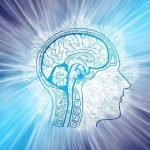Brain & Mind
Cannabis use linked to anxiety and depression, study warns
Cannabis use has become more common in recent years, especially in countries where it has been legalized.
While many people see it as a way...
Why complaining about your boss might actually bring coworkers closer
Most people have done it at least once—venting to coworkers about a frustrating boss after a long meeting or a tough day.
Gossiping about the...
New brain therapy reduces depression effectively in just 5 days
Depression is one of the most common mental health conditions in the world, affecting hundreds of millions of people. It can cause deep sadness,...
Exercise may be one of the most powerful treatments for depression and anxiety
Depression and anxiety are among the most common health problems in the world today. They affect people of all ages, from teenagers to older...
Fast brain therapy may bring depression relief in just one week, study finds
Depression is a serious condition that affects how people think, feel, and live their daily lives. For many people, antidepressant medications help, but a...
Implanted nerve device could treat severe, chronic depression
Major depression is one of the most common mental health conditions in the world. In the United States alone, about one in five adults...
Mental health issues after a cancer diagnosis may affect death risk
A new study has found that adults who develop mental health problems soon after being diagnosed with cancer may face a higher risk of...
AI may spot schizophrenia and bipolar disorder years earlier
Schizophrenia and bipolar disorder are serious mental health conditions that often begin in late teenage years or early adulthood. These illnesses can deeply affect...
Why adding eyes makes robots seem more human
A new study suggests that something as simple as adding eyes to a humanoid robot can dramatically change how people perceive it.
Researchers from Tampere...
AI chatbots may worse mental diseases
A new study has raised concerns about how artificial intelligence chatbots may affect people living with mental illness.
Researchers looked at electronic health records from...
Many older people given risky mental health drugs without official approval
A new large study from Finland has revealed that many older adults are being prescribed strong psychiatric medications for reasons not officially approved by...
Stopping depression drugs may cause harsh withdrawal symptoms
A new large study has found that about one in six people may experience withdrawal symptoms after they stop taking antidepressants.
These medicines are widely...
Popular Reports
Shift work linked to higher risk of depression and anxiety, study finds
A study from Huazhong University of Science and Technology reveals that shift work is associated with a higher risk of developing depression and anxiety.
The...
This study shows the key to depression recovery
In a recent study from the University of Toronto, researchers found that feeling sensations, including ones connected to sadness, may be key to depression...
Low to moderate stress is good for you, shows study
The holidays are a stressful time for many, but that may not be a bad thing when it comes to your brain functioning.
Dementia hurts not only your memory, but also your emotions
Dementia is a challenging condition that affects millions of people worldwide.
While memory loss is often the focus when discussing dementia, researchers are highlighting another...
Being socially active could lower your dementia risk
In a new study, researchers found that being more socially active in their 50s and 60s predicts a lower risk of dementia in people.
The...





















